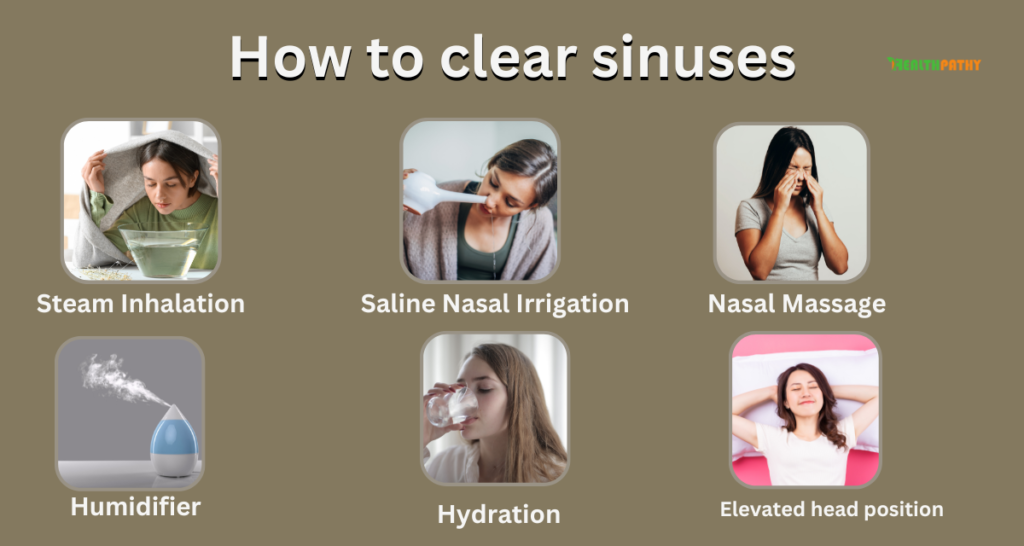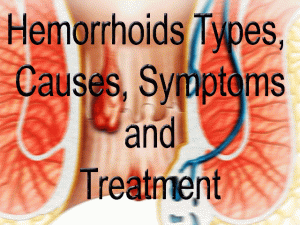Sinus drainage is a natural process and essential to preserving the well-being of our respiratory system. The sinuses are tiny, air-filled spaces found in the skull and face bones. They secrete mucus, a viscous, thick liquid that coats and shields the delicate nasal mucosa and also helps in the removal of bacteria and dust that enter through the air. However this drainage process can be hampered by irritants, allergies, infections, or other conditions that cause the sinuses to become inflamed or congested, which can cause discomfort and a variety of symptoms. This article is to aware you of how to clear sinuses.
Symptoms of Sinus Drainage How to clear sinuses
Before knowing how to clear sinuses one should be aware of the underlying reason that can affect the severity and duration of sinus leakage symptoms. Symptoms that are frequently suggestive of sinus issues and linked to disturbed sinus drainage include:
Nasal congestion
It is a classic sign of sinus problems in which breathing through the nose is difficult due to blockage or stuffiness of the nasal passages.
Runny or Stuffy Nose
Issues with sinus drainage can produce an excessive amount of mucus, which can cause a runny nose or a feeling of congestion and fullness.
Postnasal Drip
Mucus from the back of the nose that trickles down the throat can irritate it, make you cough, or make you feel like you need to clean your throat all the time.
Pain or Pressure in the Face
Pain or pressure in the forehead, cheeks, or area surrounding the eyes may be caused by inflamed sinuses. Many people compare this pain to sinus headaches.
Diminished Sense of Taste and Smell
Nasal inflammation and congestion can make it harder to taste and smell correctly.
Coughing
Postnasal drip irritation, particularly at night, can cause coughing.
Fatigue
Due to the disruption of sleep and general pain, sinus problems can be extremely taxing on people.
Sore Throat
A sore or scratchy throat may result from postnasal drip.
Bad breath
Halitosis, or foul breath, may be caused by an overabundance of germs and mucus in the sinuses.
Fever
When the body’s immune system fights off an infection, fever might happen in situations of sinus infections.
It’s crucial to remember that symptoms of sinus discharge can mimic those of other respiratory disorders, including allergies, colds, and even more severe sinus infections. For a precise diagnosis and suitable treatment, it is recommended that you speak with your doctor if your symptoms are severe or persist for a longer period.
How to clear sinuses

There are multiple efficient ways to clear your congested sinuses that make breathing easier. Here are a few thorough methods for unclogging sinuses:
Inhaling steam: How to clear sinuses
- Bring water to a boil and pour into a big bowl.
- For extra relief, mix in a few drops of essential oils, such as peppermint or eucalyptus (optional).
- To make a steam tent, lean over the bowl and drape a towel over your head.
- Breathe deeply for ten to fifteen minutes.
- The essential oils may offer further calming effects in addition to helping to thin mucus to expel out.
Nasal irrigation with saline:
- For this, you can use a Neti pot or buy a saline nasal spray.
- Use the saline spray according to the directions on the package, or make your saline solution by combining 1 teaspoon salt and 1/4 teaspoon baking soda with 8 ounces of boiling or distilled water.
- Slide the neti pot or spray nozzle into one nostril while gently cocking your head to the side. Then, let the saline solution pass through your nasal passages and out the other nostril.
- By clearing mucus, allergies, and irritants from the body, this technique relieves congestion.
Hydration: How to clear sinuses
- Maintaining adequate hydration is crucial. Getting plenty of liquids, like herbal teas, warm broths, or water, can help keep your nasal passages moist and thin mucus.
- Additionally, hydration promotes your body’s overall immune response, which facilitates healing.
Hot Compressor:
- Place a clean cloth over your sinus areas (forehead, cheeks, or nose), wring it out, and soak it in hot water.
- After 10 to 15 minutes, remove it and repeat as necessary.
- Breathing will be made easier by the warmth’s ability to reduce pressure and pain.
Sprays for nasal decongestants: How to clear sinuses
- Nasal decongestant sprays available over-the-counter, such as oxymetazoline, act quickly to relieve congestion by narrowing blood vessels in the nasal passages.
- To prevent a rebound effect—a condition in which congestion gets worse after stopping use—it’s critical to adhere to the directions and not use the medication for longer than a few days.
Salivary Strips:
- You can use nasal strips on the outside of your nose, such as ones with flexible bands.
- By physically opening the nasal passages, these strips aid in increasing airflow and decreasing congestion.
Bringing Your Head Up:
- Use an additional pillow to raise your head while you sleep. By lowering blood flow to the nasal passages, this posture can improve drainage and lessen congestion.
A hot cozy shower
- Clearing your sinuses can be achieved by taking a warm, steamy shower.
- Breathing becomes easier when your nasal passages are opened by the heat and moisture from the shower.
Hot and Spicy Foods:
- Capsaicin, found in spicy foods like horseradish and chili peppers, stimulates heat receptors in the nose, temporarily opening nasal passages.
Over-the-Counter Drugs: How to clear sinuses
- Decongestants with antihistamines or pseudoephedrine can help relieve sinus congestion and lessen related symptoms like sneezing and runny nose.
- A healthcare provider should always be consulted before using these products for an extended period. Instead, follow the dosing instructions on the packaging.
Essential oils:
- You can use a diffuser or put a few drops of essential oils in a bowl of hot water for aromatherapy.
- Breathe in the fumes to experience the calming and clearing effects of essential oils such as tea tree, peppermint, and eucalyptus.
Mild Nasal Therapy: How to clear sinuses
- Press the bridge and the sides of your nose gently with your fingertips. Apply pressure in a circular manner.
- This may promote sinus drainage, lower blood pressure, and increase blood flow.
Avoid Allergens:
- Recognize and control environmental allergens, such as pollen, dust, and pet dander.
- Allergy-related sinus blockage can be avoided by using air purifiers, allergy-proofing your home, or taking antihistamine medications.
Humidifier
- By keeping your room at the ideal humidity level and keeping your nasal passages from drying out—which exacerbates congestion—you can use a humidifier.
Sleep and Rest:
Getting enough sleep is essential for your body to heal. Steer clear of physically demanding activities, get adequate rest, and let your immune system do its job of eliminating the root cause of sinus congestion.
Summary How to clear sinuses
Here we discuss several efficient ways on how to clear sinuses and relieve pain and congestion. These include over-the-counter medications, different home-based techniques, and natural remedies like saline nasal irrigation, steam inhalation, and hydration. Essential elements of managing sinus congestion include preserving general health, controlling allergies, and making sure you get enough sleep. Even though many people find relief with these techniques, it’s important to consult a doctor if symptoms worsen, persist, or are accompanied by more serious health issues. In the end, people can alleviate sinus congestion and breathe more easily by learning and putting these techniques into practice, which will enhance their general well-being.
Frequently Asked Questions How to clear sinuses
1. What is the best over-the-counter treatment for unclogging sinuses?
Ans: One of the best at-home treatments for unclogging sinuses is steam inhalation. Make a steam tent with a towel, boil some water, and spend ten to fifteen minutes breathing in the warm, humid air. This relieves congestion and helps to release mucus.
2. Is it okay to treat sinus congestion with nasal decongestant sprays?
Ans: Although nasal decongestant sprays can offer immediate relief, they should only be applied in moderation and for a brief period—usually no longer than a few days. It’s crucial to adhere to the directions on the product packaging because prolonged use may cause a rebound effect, in which congestion gets worse after stopping.
3. Which over-the-counter drugs are effective in clearing sinuses?
Ans: Over-the-counter drugs like antihistamines and decongestants with pseudoephedrine can help reduce sinus congestion and its symptoms, like runny nose and sneezing. It’s essential to take these drugs exactly as prescribed and to refrain from using them for extended periods without first seeing a doctor.
4. Are there any natural ways to get rid of sinus congestion?
Ans: Yes, several home remedies can help relieve sinus congestion. A common natural remedy is saline nasal irrigation, which can be done with a neti pot or saline spray. Thin mucus can also be achieved by consuming large amounts of fluids, such as warm water, herbal tea, or broths. In addition, sleeping with your head raised and running a humidifier in your room can help.
5. When should I consult a doctor if I’m having sinus congestion?
Ans: If your sinus congestion is severe, chronic, or accompanied by other symptoms that are cause for concern, like a high fever, recurrent headaches, or green or bloody nasal discharge, you should consult a doctor. These may indicate a more serious sinus condition or infection that calls for further testing by a medical professional or prescription medication.
Related Articles


Follow us





